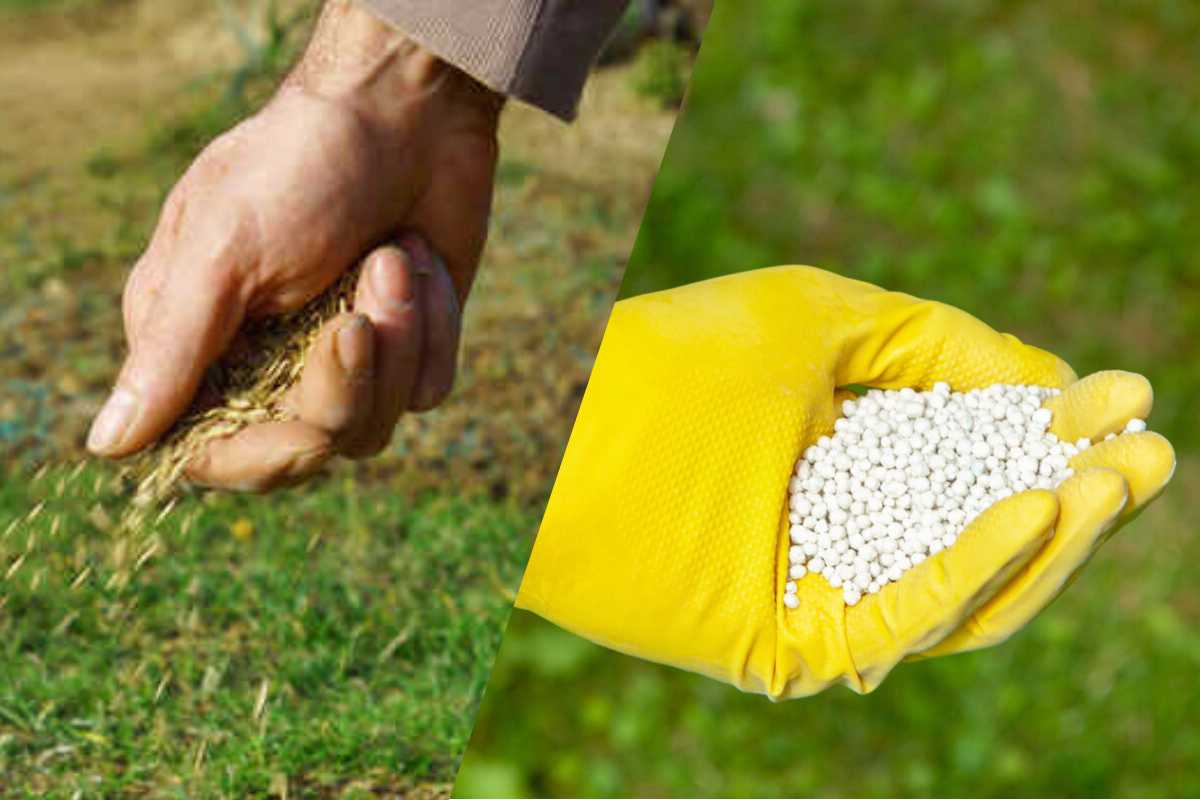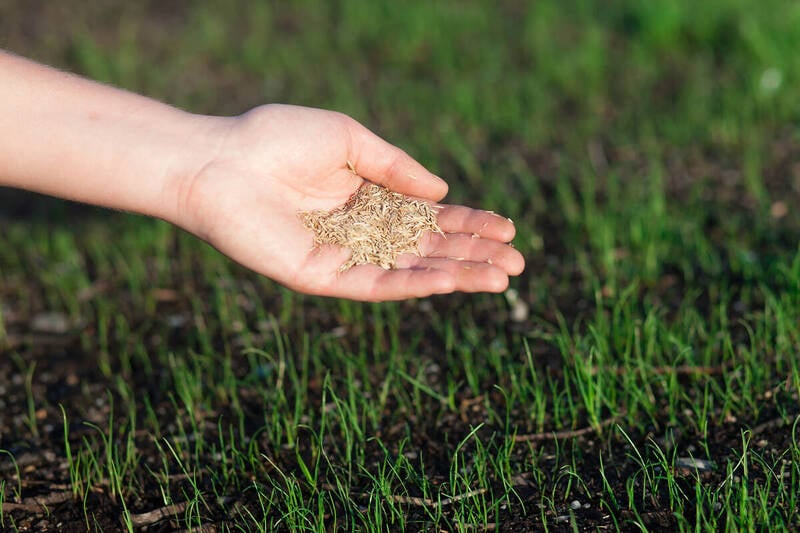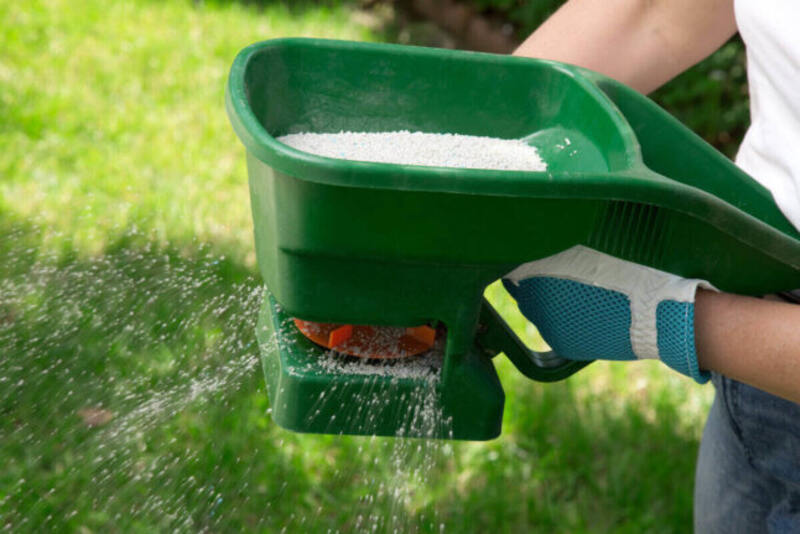
Can you fertilize and overseed at the same time? Yes. Many pros swear by this technique. But if you don’t want your established grass and baby seeds battling it out for nutrients, it’s better to wait a few weeks.
General fertilizers can be great for your established lawn but too strong for seeds. Overseeding and fertilizing would be like putting seeds and established grass together in a wrestling ring to tussle for the same nutrients. Trust me, they have different needs.
To be more clear? Overseeding and fertilizing at the same time is possible, but it may not be the best option. In this article, I’ll explain why.
Benefits of Delaying Fertilizer Application
Fertilizing and overseeding at the same time sounds ambitious, but it can get messy. Pay attention to the following benefits of delaying fertilizer application on overseeded lawns.

Proper Seed Care
When you overseed, you add seed grass to the already established lawn. Now, seeds and young sprouts are fragile compared to their fully-grown turf counterparts. Fertilizing an overseeded lawn at the same time is like sending a toddler to lift weights. The fertilizer can be too strong and burn the grass seed before it even gets a chance to sprout.
No Fighting Over Nutrients
If you seed and fertilize simultaneously, the new seeds and the established grass are going to fight over the same nutrients. This leads to poor seed germination and limited growth, with neither the old grass nor the new seeds getting what they truly need.
Right Nutrition for Your Lawn
Then there’s the issue of different nutrient requirements. Grass seed makes good use of starter fertilizers. Established grass, on the other hand, is less fussy and can handle a general-purpose fertilizer. Applying a starter fertilizer to established grass could lead to problems and lawn disappointment.
How Much Time to Wait Until Applying Fertilizer

You should wait about six to eight weeks after overseeding to fertilize your lawn. Your new grass will be established by then and strong enough to handle extra nutrients. But be careful to have the right type of fertilizer for your specific seed variety.
A soil test acts like a personal nutritionist for your lawn, helping you pick a fertilizer with the perfect blend of nutrients. Check this guide on Why, When, and How to Test the Soil pH of Your Lawn.
Once you have your soil test results and the right fertilizer in hand, apply it evenly across your lawn. Follow the instructions on the fertilizer package for the best results. Here’s a list of 7 Best Fertilizers for Grass.
FAQ About Fertilization and Overseeding
How do I keep birds from eating my grass seed?
To keep birds from feasting on your freshly spread grass seed, cover the seeded area with straw or seed blankets. Check out the pros and cons of straw in our article Should You Put Straw Over Grass Seed?
Can I use a starter fertilizer when overseeding my lawn?
Using a starter fertilizer when overseeding your lawn isn’t recommended because it’s not made for established grass and could damage your existing lawn.
What is the difference between starter fertilizer and weed and feed?
The difference between starter fertilizer and weed and feed lies in their purposes and compositions. Weed and feed products are mixtures of herbicides and fertilizers designed to both feed your lawn and kill weeds simultaneously. Here’s a guide on the 7 Best Weed and Feed Products.
On the other hand, starter fertilizer is a concentrated blend of nitrogen, phosphorus, and potassium. It is made to meet the needs of new grass, such as seedlings or sod.
Hire a Pro to Help You With Your Lawn
Fertilizing and overseeding at the same time is generally recommended, but waiting until the seeds are well established can have better results.
After overseeding and fertilizing you will obtain a dense and beautiful lawn. If you need help taking care of it, call a lawn care professional. They can handle the nitty-gritty and leave you with a gorgeous lawn.
Main Image Credits:
Overseeding: Mabeline72 / Shutterstock
Fertilizing: adragan / Adobe Stock Free / License created using Canva Pro